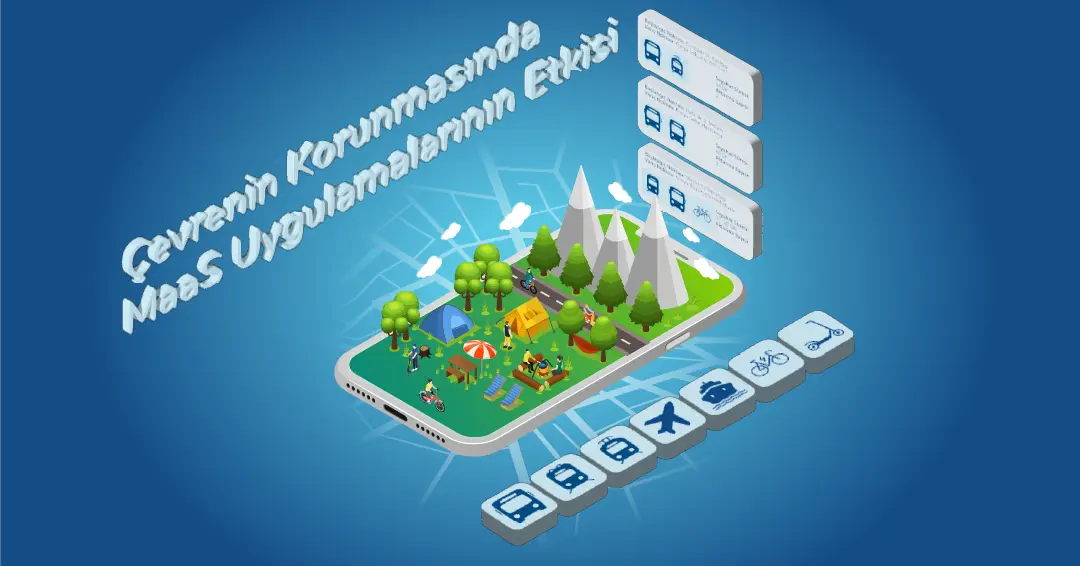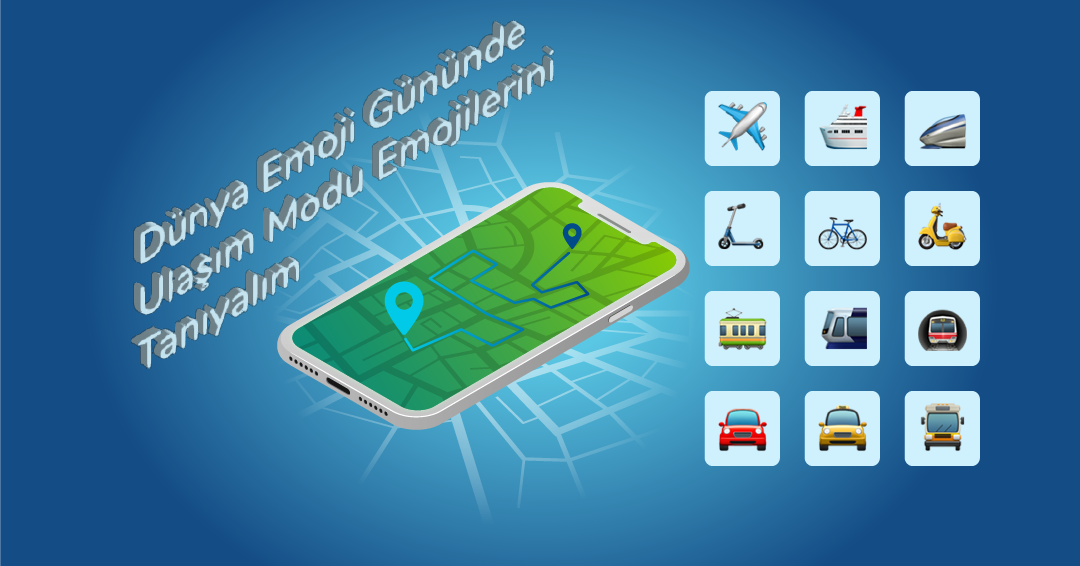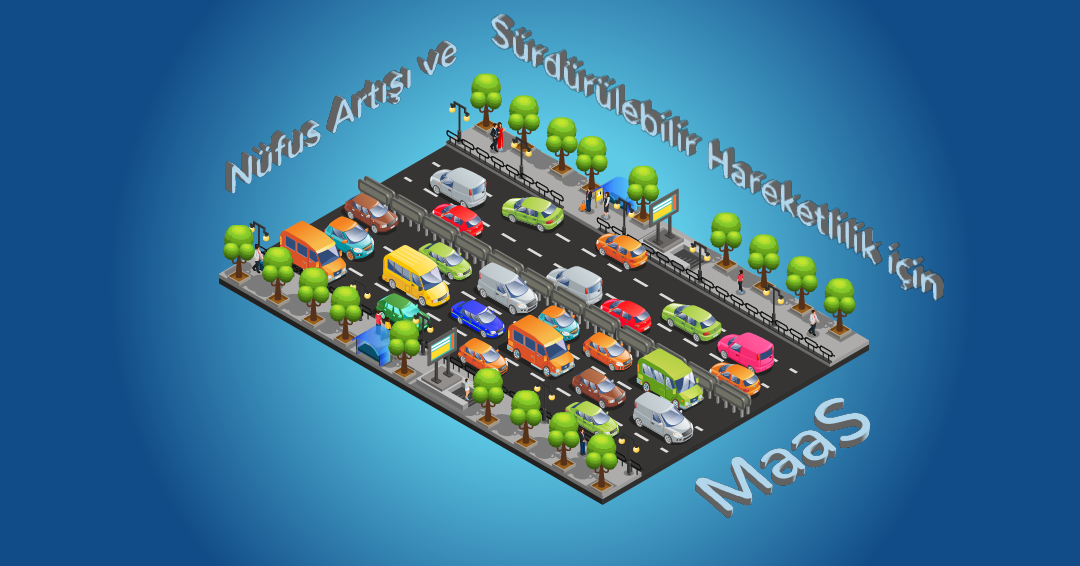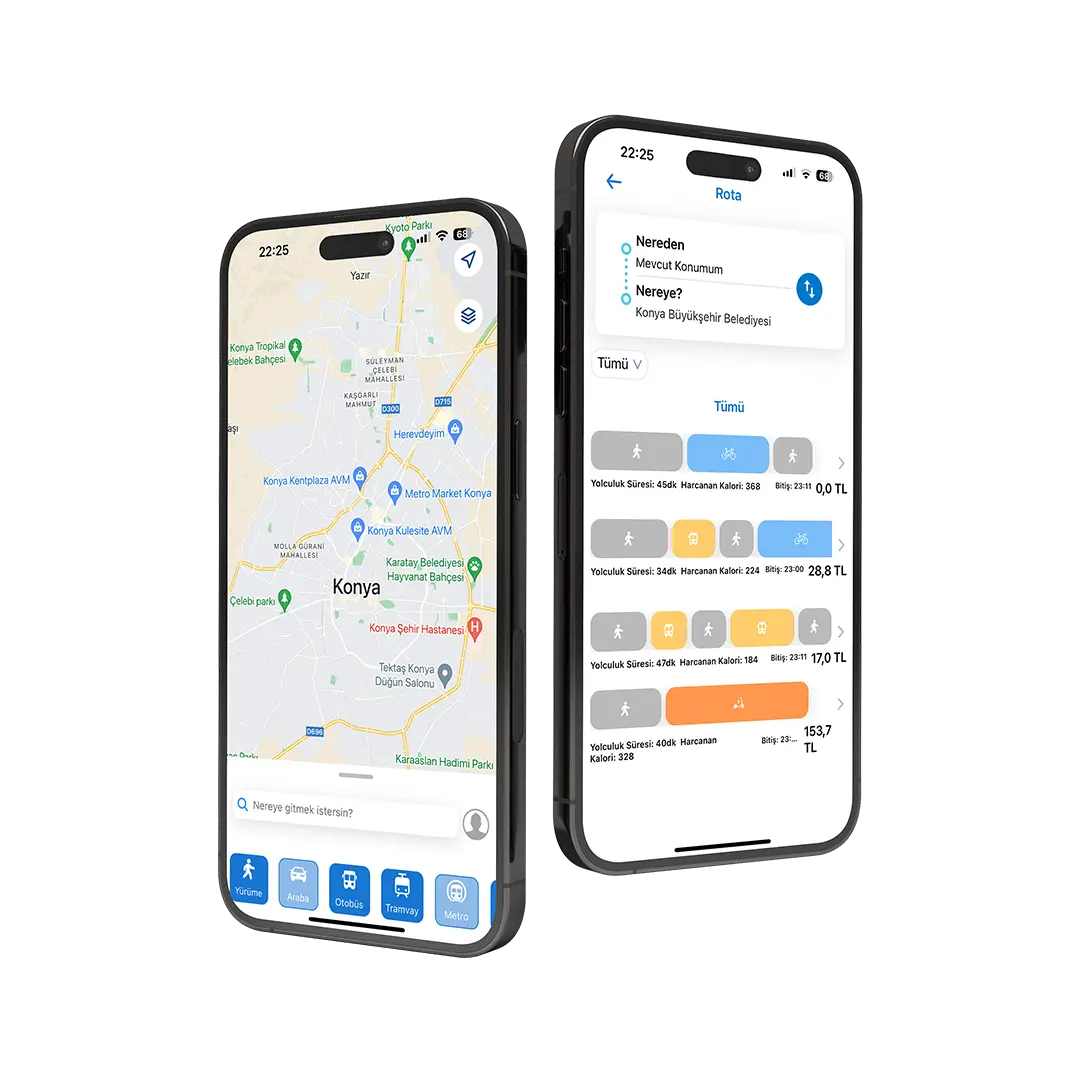Bugün 5 Haziran Dünya Çevre Günü. Dünya Çevre Gününde, çevre dostu uygulamaların ve yenilikçi çözümlerin önemi bir kez daha vurgulanıyor. Günümüzde, hızla artan nüfus ve şehirlerdeki trafik sıkışıklığı gibi sorunlar, çevreye yönelik tehditleri artırıyor. Ancak, Hizmet olarak Mobilite (MaaS) uygulamaları gibi teknolojik gelişmeler, ulaşım alanında sürdürülebilir çözümler sunarak çevrenin korunmasına yardımcı oluyor. Bu yazıda, MaaS uygulamalarının çevresel etkilerini keşfedeceğiz ve nasıl sürdürülebilir bir gelecek sağlayabileceğini inceleyeceğiz.
- Trafik Yoğunluğunu Azaltma:
MaaS uygulamaları, bireyleri kendi araçları yerine toplu taşıma, paylaşımlı bisiklet, paylaşımlı e-scooter, taksi ve paylaşımlı araç gibi alternatif ulaşım seçeneklerini kullanmaya teşvik eder. Bu, toplu taşıma araçlarının daha etkin ve verimli bir şekilde kullanılmasına yardımcı olur ve bireysel araç kullanımının azalmasına katkıda bulunur. Sonuç olarak, trafik yoğunluğu azalır ve dolayısıyla sera gazı emisyonları ve hava kirliliği de azalır.
- Araç Paylaşımı ve Paylaşımlı Mikromobilite Araçları:
MaaS uygulamaları, araç paylaşımı ve paylaşımlı mikromobilite araçları (örneğin bisiklet) gibi alternatif ulaşım modlarının yaygınlaşmasını teşvik eder. İnsanlar, ihtiyaçları doğrultusunda araçları paylaşarak çevreye daha az etki eder. Birçok insanın sahip olduğu özel otomobiller, büyük bir kısmı zamanlarının çoğunda park halindedir. Paylaşımlı araçlar, araçların daha etkin bir şekilde kullanılmasını sağlar ve dolayısıyla enerji ve kaynakların israfını azaltır. Aynı şekilde, bisiklet vb. mikromobilite araçlarının paylaşımı da çevre dostu bir ulaşım seçeneği sunar ve şehir içi trafiği rahatlatır.
- Entegre Ulaşım Planlaması:
MaaS uygulamaları, kullanıcılara farklı ulaşım modlarını entegre bir şekilde kullanma imkanı sunar. Bu uygulamalar, seyahat planlaması yaparken kullanıcıların farklı ulaşım seçeneklerini birleştirmelerine yardımcı olur. Örneğin, bir kullanıcı otobüsle bir yere gitmek istediğinde, MaaS uygulaması ona en yakın otobüs durağını, otobüs saatlerini ve ardından varış noktasına ulaşması için bir bisiklet paylaşım istasyonunu gösterebilir. Bu entegre ulaşım planlaması, kullanıcıların daha etkin bir şekilde seyahat etmelerini sağlar ve aynı zamanda enerji tüketimini azaltır.
MaaS (Hizmet olarak Mobilite) uygulamaları, çevreye yönelik olumlu etkileriyle ulaşım sektöründe bir devrim yaratıyor. Trafik yoğunluğunu azaltma, araç paylaşımı ve bisiklet paylaşımı, elektrikli araç kullanımını teşvik etme ve entegre ulaşım planlaması gibi özellikleri sayesinde çevrenin korunmasına katkıda bulunuyorlar. Bu uygulamalar, insanları sürdürülebilir ulaşım seçeneklerini tercih etmeye teşvik ederek, hava kirliliğini azaltmaya, sera gazı emisyonlarını düşürmeye ve enerji tüketimini optimize etmeye yardımcı oluyor. MaaS uygulamalarının benimsenmesiyle, gelecekte daha temiz ve yaşanabilir bir çevre inşa etmek mümkün olacak.
Dünya Çevre Günü’nde, MaaS uygulamalarının sunduğu potansiyeli hatırlamak, çevresel sorunlara çözüm bulma yolunda bir adım atmamıza yardımcı olacaktır. İleriye dönük adımlar atarak, sürdürülebilir bir ulaşım sistemi ve daha temiz bir çevre için birlikte çalışabiliriz.













